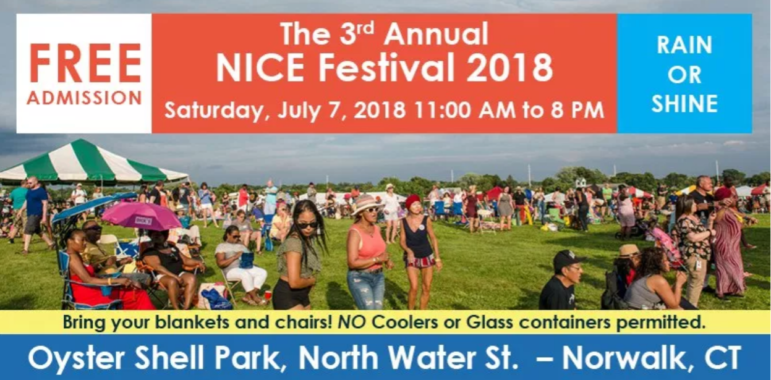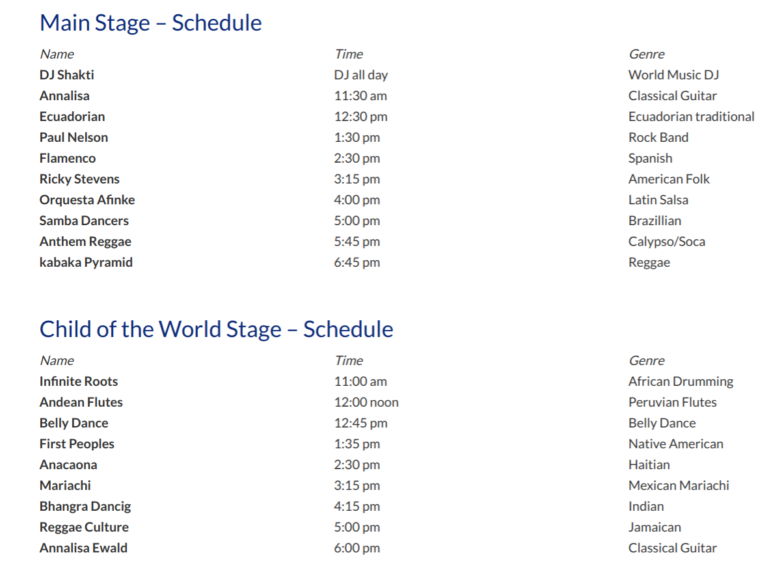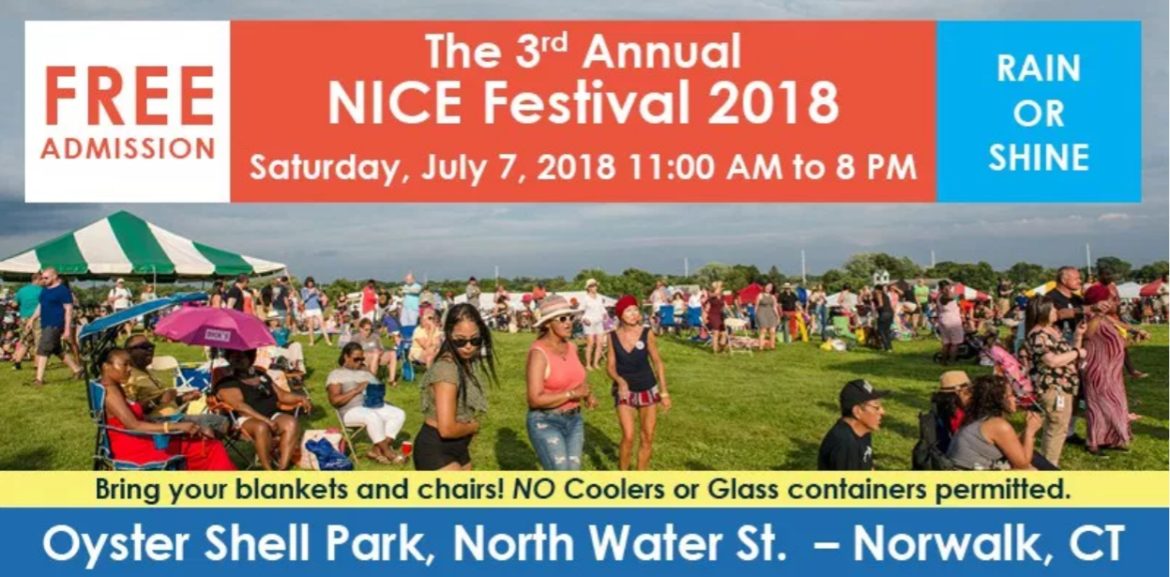The third annual Norwalk NICE Festival, an all-day, free, summer multicultural celebration of music, food, and dance, takes place Saturday, July 7. You may find it a lot more than nice.

Image from the Norwalk NICE Festival website
The Norwalk NICE Festival runs from 11 a.m. to 8 p.m., Saturday, July 7.
This day-long event is filled with an abundance of cultural performances and numerous vendors offering a wide array of international cuisines and arts and crafts.
— an announcement from the Norwalk NICE Festival, including information from the festival website
Experience live performances from multiple traditions to include live dancers with origins in Flamenco, Asian, African, and more; Live music includes Rock, Reggae, Rhythm & Blues, Latin, Folk and music across all genres.
Honoring Norwalk International Cultural Exchange’s commitment to increasing awareness of the diversity of people from around the world through arts and culture, NICE festival organizers have assembled a line-up of multicultural, celebratory sounds for all ages to enjoy.
In addition to the featured live bands listed below, The NICE Festival, a daylong celebration of world cultures, will have numerous dance performances and live bands, plenty of family fun activities, interactive arts area, and international food and craft vendors.
- One day festival celebrating different world cultures through music, food and the performing arts.
- Food: world cuisines
- Education, health, and environmental exhibits
- Children’s activities 12 noon to 4 p.m.
- Family-friendly attractions with fun interactive games, and exhibits
- Supported by Norwalk Department of Recreation & Parks, Norwalk International Cultural Exchange (NICE), Inc, sponsors, and vendors
Entertainment
Headlining the 2018 festival on the main stage will be Reggae’s newest sensation, straight from Jamaica: Kabaka Pyramid and the Bebble Rockers. Kabaka Pyramid is a multi-talented artist and producer coming straight from the streets of Kingston, Jamaica with a unique musical style blending the lyricism of Hip hop, with the energy and melody of Reggae and Dancehall.
He is based out of the Bebble Rock music camp and through his liquid and hypnotizing delivery spreads the positive messages of spirituality and conscious evolution.

Image from the festival website
Schedule of performances at the July 7, 2018 Norwalk NICE Festival.
The main stage also features Connecticut’s Got Talent winner and Norwalk’s own Riki Stevens. Riki found her voice through studying and performing genres like Opera, Jazz, European traditional choral music, as well as contemporary Christian music. Riki struggled to settle into her individual unique sound, but her musical journey has made her a flexible artist who will not be confined to a genre.
Additional main stage performances include Paul Nelson and his Rock band, Yohanna Escamilla, a local Norwalk Flamenco dancer, Vania Samba Brazilian dancers, Anthem Reggae Band and gracing the stage for the third year in a row is the electrifying Salsa sounds of Orquesta Afinke.
If You’re Going …
- The NICE Festival runs from 11 a.m. to 8 p.m., Saturday, July 7, 2018, rain or shine.
- It takes place in Oyster Shell Park on North Water Street in Norwalk.
- Here’s more information on going to the festival, including parking information.
- Bring your blankets and chairs.
- No coolers or glass containers permitted.
About the Organizer
The Norwalk International Cultural Exchange (NICE) is a non-profit organization that seeks to promote and increase awareness of the diversity of people from around the world through arts and culture.
The mission of NICE is to encourage the various groups that make up our society to learn about each other’s traditions and customs in order to foster a deeper understanding and appreciation of what each group brings to our community.
The NICE Festival Series celebrate the rich global heritage and culture so evident in the music, food, art and talent of which we in Norwalk, CT are so proud. The NICE Festival Series host dancers, musicians, food and craft vendors from multiple traditions and customs; and encourage the community to spend the day together.
NICE INC supports global and local charitable organizations in their fight against the problems facing the modern world, which as we know, include poverty, hunger, sparse economic and educational opportunities, and slavery.

